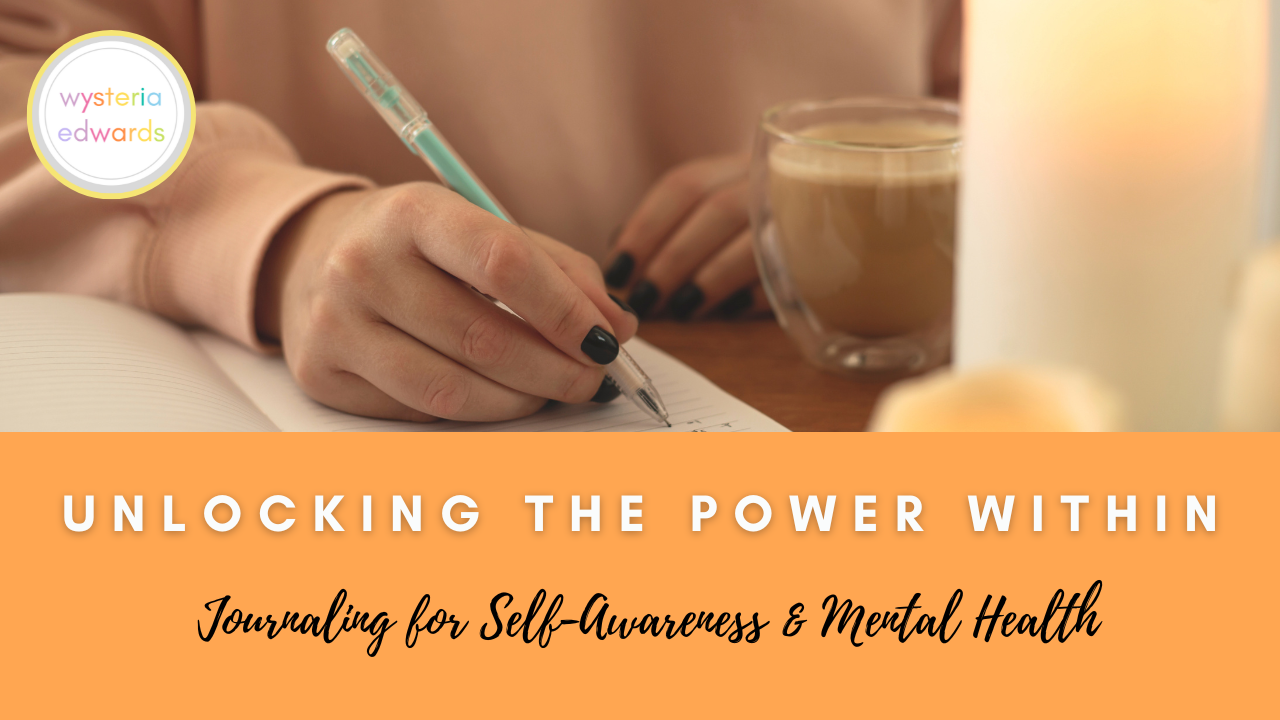Unlocking the Power Within: Journaling for Mental Health & Awareness
Feb 19, 2023
Whether you’re struggling with a mental health issue or just trying to cope with the challenges of everyday life, journaling can be an invaluable tool for recovery and growth. Writing down our thoughts and feelings helps us slow down and gain clarity on what is happening inside us, allowing us to identify causes and solutions for issues that may be causing distress, such as anxiety or depression. Journaling has also been linked to improved moods, better-coping skills, heightened awareness of emotions and thoughts, enhanced understanding of one's beliefs and values, and improved decision-making skills. Let’s explore how journaling can help move you toward greater wellness.
The Power of Reflection
Journaling allows us to reflect on our lives in a way that is often difficult during regular conversations. It allows us to take time to really think about what we are feeling without having to worry about appearing vulnerable or worrying about being judged. Furthermore, it allows us to express ourselves without fear of being judged by others. By writing down our experiences in whatever form they take—whether it's stories, poems, or song lyrics—we can begin to make sense of them and find meaning in them. This process can be incredibly powerful! Writing down our thoughts also helps us diffuse intense emotions to gain perspective on what is happening inside of us. We can then use this newfound clarity when trying to identify potential solutions for whatever problem we are facing at the moment.
Start simple. Journaling doesn't have to be long-winded or complicated. Even if you don’t feel ready for a deep dive into your thoughts and feelings, start by writing down one word or sentence that sums up how you're feeling at the moment. This simple exercise can help us become more aware of our emotions and better understand what is going. It also gives context when we delve deeper into our thoughts and feelings.
Today, I am grateful for...
Today, I learned...
Today, I feel...
Today, I want to remember...
Today was a good day...
Using Journaling in Therapy
Many therapists use journaling as part of their treatment plan for patients who are dealing with mental health issues such as depression, anxiety, or grief. Writing can be used as a way for people to explore their feelings more deeply than they would otherwise be able to do in conversation with a therapist or another person. In addition, journaling allows people to track their progress over time which can be incredibly helpful when it comes time for therapy sessions because it allows therapists to get an idea of what type of progress their patient has made since their last meeting.
I repeatedly showed my journals to my therapist while in recovery to remain accountable and open to the healing process. Scary, I know.
Journaling is a powerful tool for recovery and mental health because it gives us the freedom and space we need to understand ourselves better by reflecting on our experiences more deeply than we would otherwise be able to during regular conversations with others. Writing down our thoughts helps us slow down so that we can gain perspective on what is happening inside ourselves, allowing us greater clarity when trying to find potential solutions for whatever problem we are facing. When combined with other self-care practices like therapy sessions or meditation exercises, journaling can become an invaluable tool on your path toward greater wellness!
"Journaling is a way to take our raw thoughts and feelings, capture them on paper, and reflect on them in order to gain insight and understanding." - Kristin Neff

